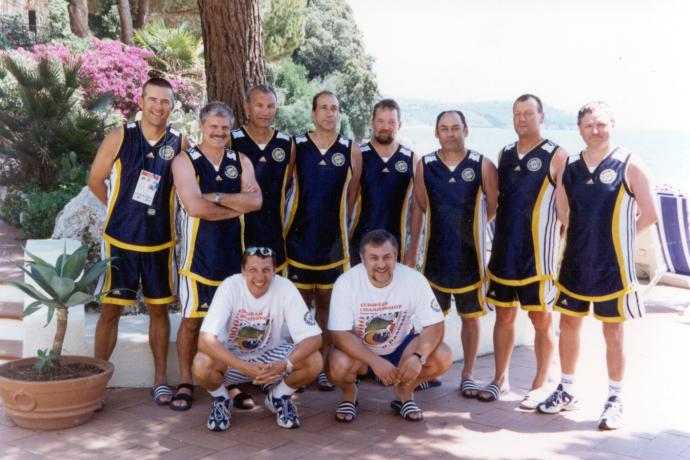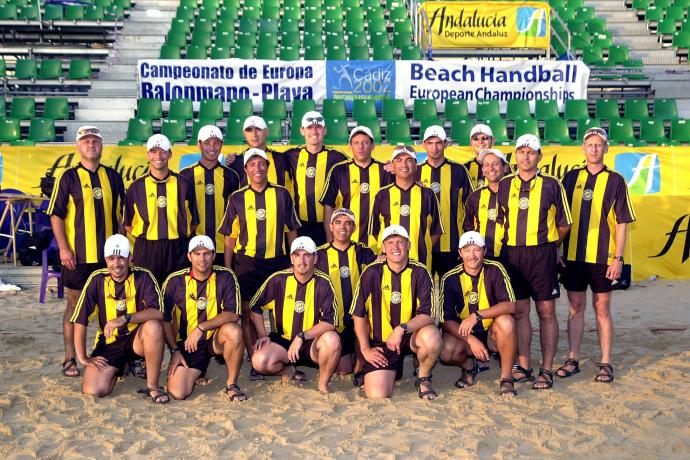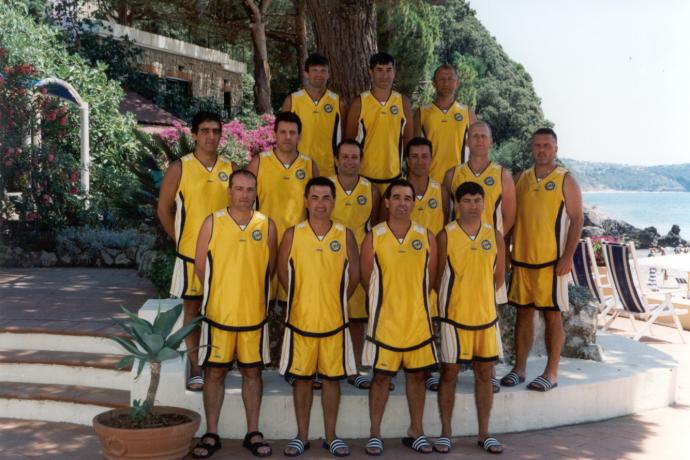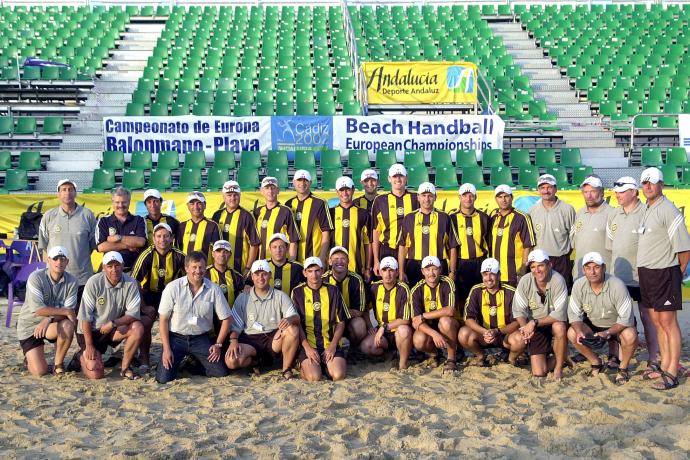At the end of the 1980s beach volleyball was very popular on the beaches of Italy and it was not too long before the country’s handballers also began to consider how they might develop a beach version.
The Italian coach Simonetta Montagni was the first to begin developing handball on the beach at about the same time as the players in the Netherlands began experimenting with the new trend sport.
In 1990, the newly elected president of the Italian federation, Ralf Dejaco, recognised the attractiveness of the sport and asked the Italian coach, Luciano Bartolini, to begin work on the first set of rules for the game.
Bartolini developed a concept for a quick and spectacular game with a goalkeeper and three court players per team and a substitution area the full length of the court. In order to make use of the existing beach volleyball lines the court was to be smaller and with a rectangular goal area.
It was to take just 10 years until the young game of beach handball was to become an official EHF sport – with the organisation of the very first EHF Beach Handball European Championship in Gaeta, Italy in 2000.
EHF and IHF recognition
In 1992, a first demonstration match was carried out in Misano Adriatico, some months later, Ponza was the place for the first ever official beach handball tournament, where the new rules were presented.
Other countries - such as Netherlands, Germany, Portugal and Russia - started their development process of beach handball at the same time, and teams of those countries were the Italian opponents at the first ever international beach handball tournament at the ‘Coppa Interamnia’ in Teramo.
Steered by Dejaco, who was at the time a member of the International Handball Federation’s propaganda and development commission, the sport then began to make progress towards becoming a recognised sport.
With the financial support of the Italian Olympic Federation a congress was organised in Formia, close to Rome, to which representatives of the IHF and also the Netherlands Handball Federation were invited, and where a common set of rules was discussed.
In 1994, the Italian referee, Piero Di Piero, presented the sport at an EHF Lecturer’s Course for the first time and Dejaco made a presentation on the sport and its rules at the IHF Congress in the Netherlands, where a test match was also played between Italy and Netherlands.
The wave of success had reached South America, where beach handball became more and more popular. In October 1995, the EHF Beach Handball Working Group was founded, including Jesus Guerrero (Spain), Tor van der Linder (Netherlands), Adriano Ruocco, Simonetta Montagni (both Italy) and EHF office member Helmut Höritsch (Austria). Some months later, an IHF working group was established too.
The original rules were adapted, tested and modified constantly while the general popularity of beach handball increased all over Europe, proved by the first ever European-wide calendar of beach handball events in 1997.
Belarus and Ukraine first champions of Europe
Two years later, the first EHF course for Beach Handball referees took place in Turkey, followed by the first ever EURO in 2000.
Each eight male and female teams faced for the first trophies in Gaeta, Italy – but is was not to be the beach handball founders and hosts Italy on the podium, but the Belarusian men, who won the final against Spain, and the Ukrainian women, who beat Germany in the final. In the same year, Dejaco was elected as the beach handball representative in the EHF Executive.
The second EHF Beach European Championship in Cadiz, Spain, saw 16 men’s and women’s teams taking part, the highest ever number of participants were each 18 men’s and women’s teams at the 2007 EHF Beach EURO at Misano Adriatico in Italy. The development of beach handball specialist had started, while children were attracted by the Younger Age Category EURO events.
The EHF was fully aware of the development and started several activities such as the first coaches’ course in 2005, the implementation of the European Beach Handball Tour in 2003 and the installation of the EHF Beach Handball Commission in 2007, currently under the leadership of the Norwegian Ole Jörstad.
Olympic dreams
This rapid development of the sport, which includes the first ever Beach Handball World Championship in 2004 in Egypt, has not reached its end.
Currently, beach handball hope to become part of the Olympic Programme.
And the chances are good – beach handball has already been accepted at the 2018 Youth Olympic Games to be played in Buenos Aires.
Editor's note:
This story is based on a 'History of Beach Handball', a text written and provided to the EHF by Ralf Dejaco, EHF Treasurer and former president of the Italian Handball Federation.


 Delegates at the 1st European Beach Handball Championship in Italy
Delegates at the 1st European Beach Handball Championship in Italy
 Referees at the 2nd European Beach Handball Championship in Spain
Referees at the 2nd European Beach Handball Championship in Spain
 Referees at the 1st European Beach Handball Championship in Italy
Referees at the 1st European Beach Handball Championship in Italy
 Officials at the 2nd European Beach Handball Championship in Spain
Officials at the 2nd European Beach Handball Championship in Spain